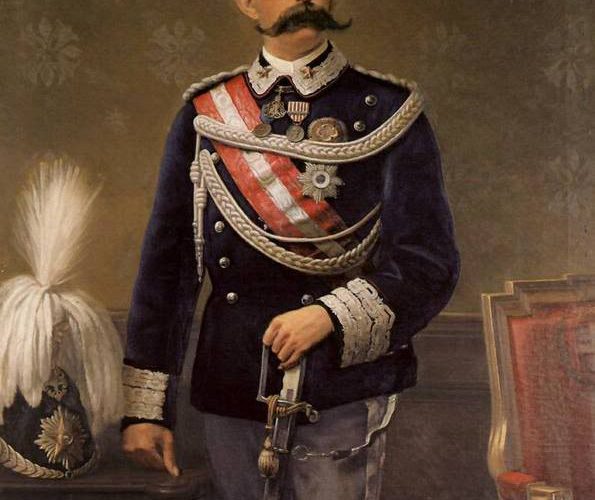Umberto I
(Turin 1844 – Monza 1900). King of Italy from 1878 to 1900, he was the son and successor of Vittorio Emanuele II. He immediately acquired the nickname of the “Good King” for visiting Naples in person during a cholera epidemic in 1884 and for abolishing the death penalty with promulgation of the Zanardelli Code. He was an admirer of Bismarck’s authoritarian policy, favoured the Italy’s rapprochement to Germany and Austro-Hungary and supported the policy of colonial expansion advocated by Francesco Crispi.
He was subsequently identified as responsible for the authoritarian policy adopted at the end of the century and the repression which resulted. The anarchists renamed him the “Machine Gun King” for his conservatism and in particular for having decorated General Bava Beccaris after his bloody suppression of the demonstrations in Milan in May 1898.
The king was assassinated in Monza on 29 July 1900 by the anarchist Gaetano Bresci.





